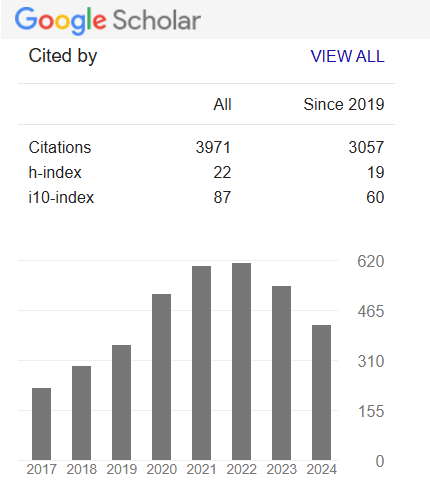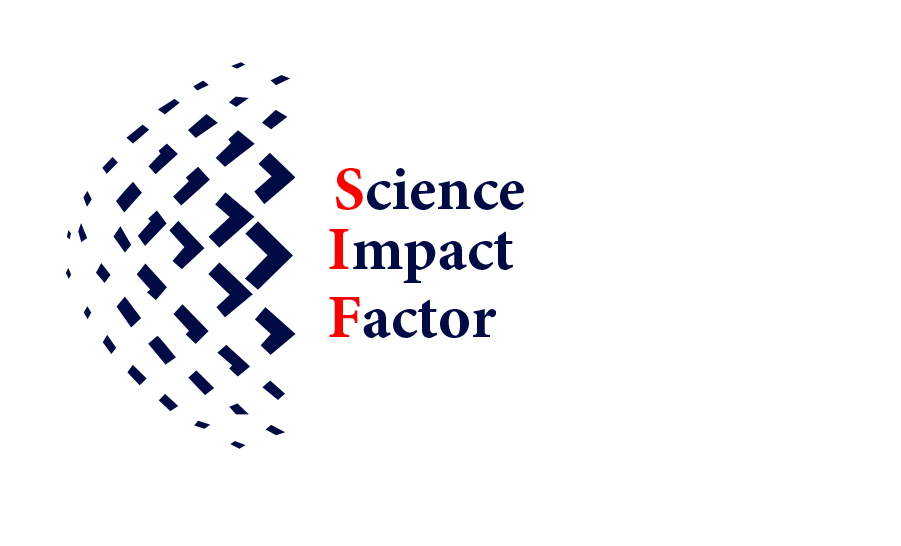Floral malformation in pearl millet due to downy mildew infection leads to changes in the metabolite profiles in inflorescence florets
Keywords:
Plant hormones, metabolites, Gibberellic acid, Salicylic acid, Sclerospora graminicola, inflorescenceAbstract
Pearl millet [Pennisetum glaucum (L.) R. Br.] is an important cereal and forage crop in arid and subtropical regions of the Indian subcontinent as well as several African regions. One of the major constraints for its production is the ‘green ear’ or ‘downy mildew’ disease caused by the oomycetous, biotrophic, obligate pathogen Sclerospora graminicola (Sacc.) Schroet. wherein extensive floral malformation leads to conversion of inflorescence to vegetative structures. To understand the mechanism of this malformation in the present study the comparative metabolite profiling was carried out. The metabolites from florets of normal and malformed inflorescence were extracted and subjected to HRLC-MS/MS and HRGC-MS/MS analysis to identify the different metabolites present. The results indicate several secondary metabolites as well as phytohormones such as salicylic acid and gibberellic acid to be present in different levels in these two florets indicating their possible roles in the process of floral malformation in pearl millet.
Downloads
References
Chandler JW (2011) The hormonal regulation of flower development. Journal of Plant Growth Regulation, 30(2), 242-254.
Chaudhary S, Chikara SK, Sharma MC, Chaudhary A, AlamSyed , Chaudhary PS & Iriti M (2015) Elicitation of diosgenin production in Trigonella foenum-graecum (fenugreek) seedlings by methyl jasmonate. International journal of molecular sciences, 16(12), 29889-29899.
Denoroy L, Zimmer L, Renaud B & Parrot S (2013) Ultra high performance liquid chromatography as a tool for the discovery and the analysis of biomarkers of diseases: a review. Journal of Chromatography B, 927, 37-53.
Ghareeb H, Becker A, Iven T, Feussner I & Schirawski J (2011) Sporisorium reilianum infection changes inflorescence and branching architectures of maize. Plant Physiology, 156(4), 2037-2052.
Heinrich M, Mah J & Amirkia V (2021) Alkaloids used as medicines: Structural phytochemistry meets biodiversity—An update and forward look. Molecules, 26(7), 1836.
Kumar R, Jha KK, Sengupta S, Misra S, Mahto CS, Chakravarty MK, Yadav M (2019) Effect of colchicine treatment on plant growth and floral behaviour in cape gooseberry (Physalis peruviana L.). Journal of Pharmacognosy and Phytochemistry, 8(5), 405-411.
Li A, Sun X & Liu L (2022) Action of salicylic acid on plant growth. Frontiers in Plant Science, 13, 878076.
Mailafiya MM, Yusuf AJ, Abdullahi MI, Aleku G A, Ibrahim IA, Yahaya M &Alebiosu CO (2018) Antimicrobial activity of stigmasterol from the stem bark of Neocarya macrophylla. Journal of Medicinal Plants for Economic Development, 2(1), 1-5.
Matheussen AM, Morgan PW, & Frederiksen RA (1991) Implication of gibberellins in head smut (Sporisorium reilianum) of Sorghum bicolor. Plant physiology, 96(2), 537-544.
Matsuoka E, Matsubara T, Takahashi I, Murano H & Hara M (2016) The isoquinoline alkaloid sanguinarine which inhibits chaperone activity enhances the production of heat shock proteins in Arabidopsis. Plant Biotechnology, 33(5), 409-413.
Pagassini JAV, de Godoy LJG, Campos FG, Barzotto GR, Vieira MAR &Boaro CSF (2021) Silicon and mechanical damage increase polyphenols and vitexin in Passiflora incarnata L. Scientific Reports, 11(1), 22064.
Raghavendra S & Safeeulla KM (1979) Histopathological studies on ragi (Eleusine coracana (L.) Gaertn.) infected by Sclerophthora macrospora (Sacc.) Thirum. Shaw and Naras. Proceedings of the Indian Academy of Sciences-Section B. Part 2, Plant Sciences, 88, 19-24.
Ritonga FN, Zhou D, Zhang Y, Song R, Li C, Li J & Gao J (2023) The Roles of Gibberellins in Regulating Leaf Development. Plants, 12(6), 1243.
Salem M, Bernach M, Bajdzienko K & Giavalisco P (2017) A simple fractionated extraction method for the comprehensive analysis of metabolites, lipids, and proteins from a single sample. JoVE (Journal of Visualized Experiments), (124), e55802.
Salem MA, Jüppner J, Bajdzienko K & Giavalisco P (2016) Protocol: a fast, comprehensive and reproducible one-step extraction method for the rapid preparation of polar and semi-polar metabolites, lipids, proteins, starch and cell wall polymers from a single sample. Plant Methods, 12(1), 1-15.
Santner A, Calderon-Villalobos LIA, & Estelle M (2009) Plant hormones are versatile chemical regulators of plant growth. Nature chemical biology, 5(5), 301-307.
Schäfer M, Brütting C, Baldwin IT & Kallenbach M (2016) High-throughput quantification of more than 100 primary-and secondary-metabolites, and phytohormones by a single solid-phase extraction based sample preparation with analysis by UHPLC–HESI–MS/MS. Plant Methods, 12(1), 1-18.
Semisi ST, Ball SFL (1989) Infection of the pearl millet (Pennisetum americanum) inflorescence by the downy mildew fungus (Sclerospora graminicola). Plant Pathol 38, 571–576.
Tan TN, Trung HT, Le Dang Q, Thi HV, Vu HD, Ngoc TN & Tran Dinh T (2021) Characterization and antifungal activity of limonoid constituents isolated from Meliaceae plants Melia dubia, Aphanamixis polystachya, and Swietenia macrophylla against plant pathogenic fungi in vitro. Journal of Chemistry, 2021, 1-12.
Thind SK (1991) Effects of a long chain aliphatic alcohol mixture on growth and solute accumulation in water stressed wheat seedlings under laboratory conditions. Plant growth regulation, 10, 223-234.
Upchurch RG (2008) Fatty acid unsaturation, mobilization, and regulation in the response of plants to stress. Biotechnology letters, 30, 967-977.
Valitova JN, Sulkarnayeva AG & Minibayeva FV (2016) Plant sterols: diversity, biosynthesis, and physiological functions. Biochemistry (Moscow), 81, 819-834.
Verma V, Ravindran P & Kumar PP (2016) Plant hormone-mediated regulation of stress responses. BMC plant biology, 16, 1-10.
Yadav RS, Hash CT, Bidinger FR, Cavan GP & Howarth CJ (2002) Quantitative trait loci associated with traits determining grain and stover yield in pearl millet under terminal drought-stress conditions. Theoretical and Applied Genetics, 104, 67-83.
Downloads
Published
How to Cite
Issue
Section
License
Copyright (c) 2023 J Samanth Kumar, Dr. Shailasree Sekhar, Dr. K Ramachandra Kini

This work is licensed under a Creative Commons Attribution-NonCommercial-NoDerivatives 4.0 International License.
Open Access This article is licensed under a Creative Commons Attribution 4.0 International License, which permits use, sharing, adaptation, distribution and reproduction in any medium or format, as long as you give appropriate credit to the original author(s) and the source, provide a link to the Creative Commons license, and indicate if changes were made. The images or other third party material in this article are included in the article’s Creative Commons license unless indicated otherwise in a credit line to the material. If the material is not included in the article’s Creative Commons license and your intended use is not permitted by statutory regulation or exceeds the permitted use, you will need to obtain permission directly from the copyright holder. To view a copy of this license, visit http://creativecommons.org/ licenses/by/4.0/











